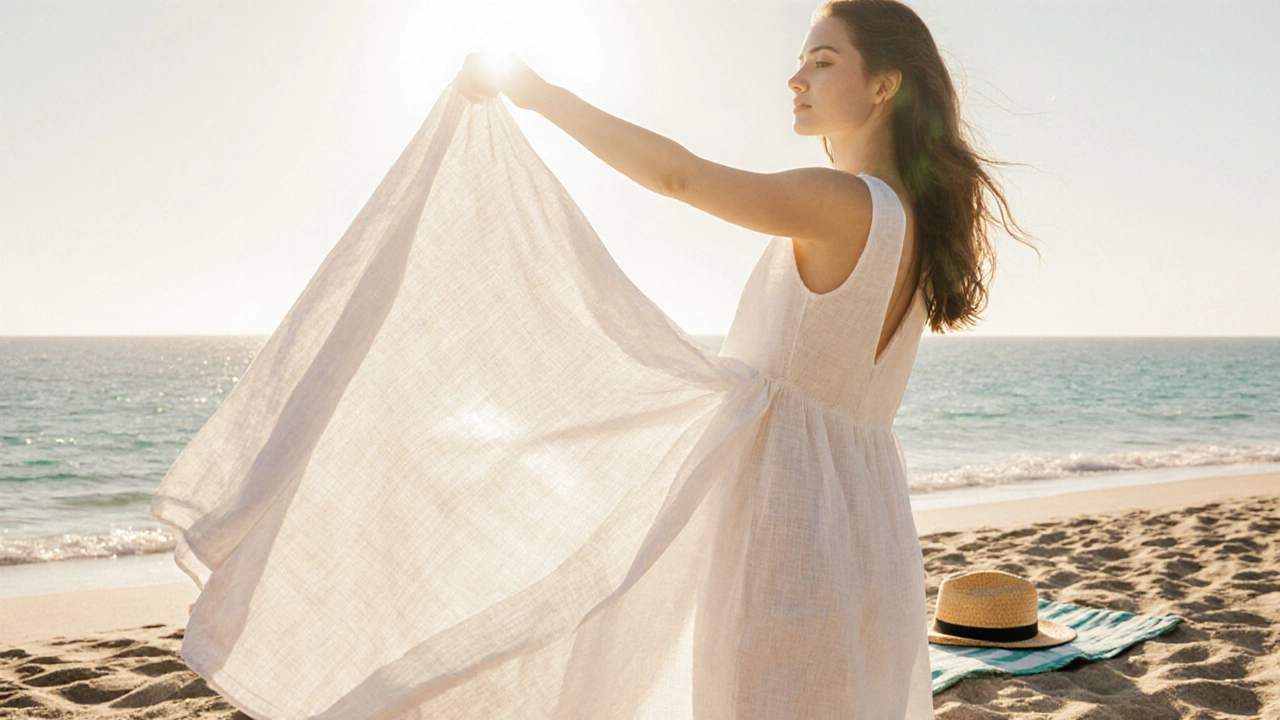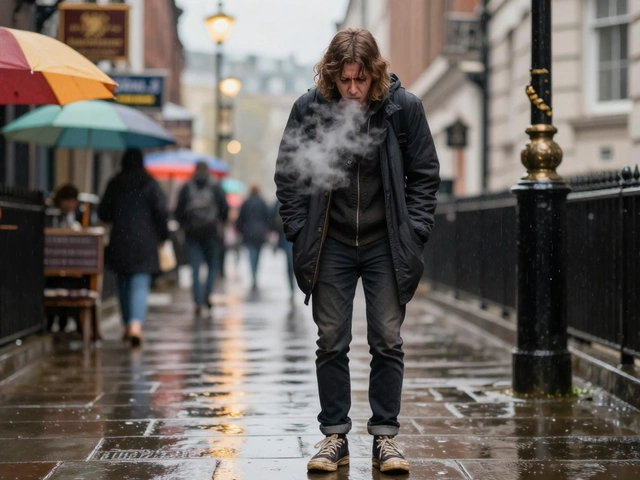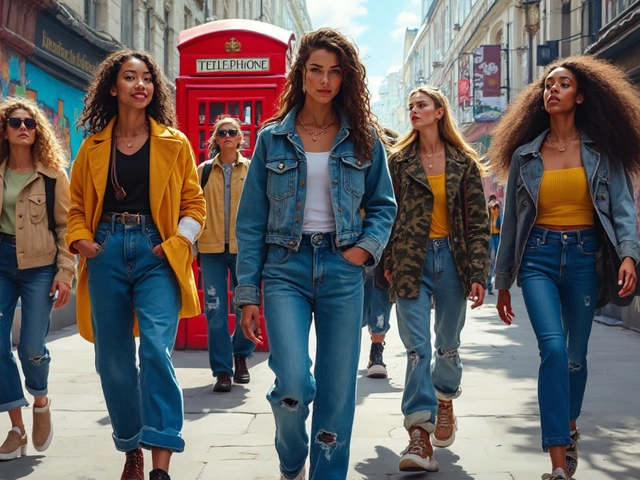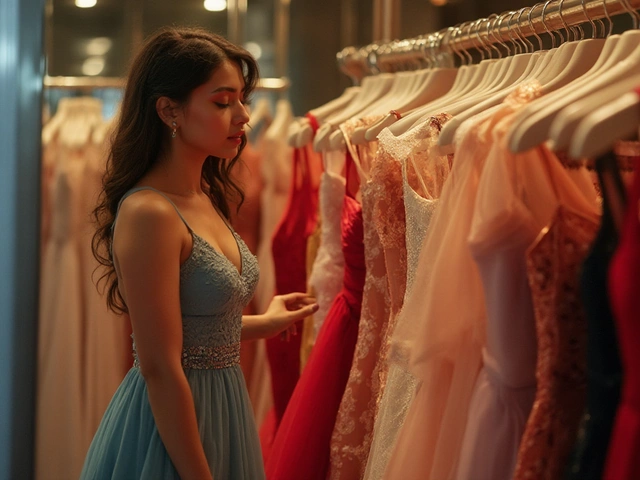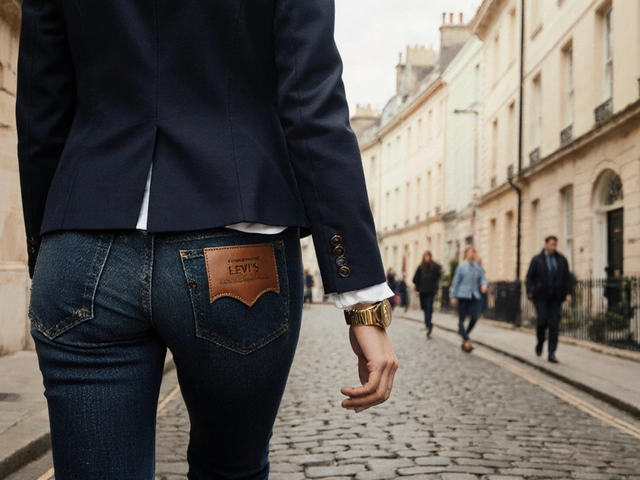Summer Dress Coolness Calculator
Stay Cool in the Sun
Select a dress color to see its heat reflectivity percentage and get styling tips for maximum comfort.
Your Coolness Results
Heat Reflectivity
Reflectivity Comparison
Recommended Fabric
Styling Tips
- Pair with straw hats, woven bags, and tan sandals
- Add a pop of color with a bright belt or statement earrings
Color Comparison
White
Light Blue
Pastel Mint
Coral
Soft Lavender
When the thermometer climbs, the first thing most of us reach for is a lighter outfit. But did you know the right shade can actually keep you cooler? Below we break down which hues work best for summer dresses, why they matter, and how to pair them with fabrics that let heat bounce right off.
Why the right shade matters in summer heat
Sunlight carries both visible light and infrared radiation. Dark pigments absorb more of that energy, turning it into heat that stays close to your skin. Lighter tones reflect a larger share, meaning less warmth builds up inside the garment. This isn’t just about comfort-studies from the Textile Research Institute show that outfit color can influence body temperature by up to 3 °C in direct sun.
The science behind "cool" colors
Cool Color is a hue that reflects a high percentage of visible and infrared light, reducing heat absorption on the wearer. While the term often pops up in design circles, the physics is straightforward: colors with high heat reflectivity bounce most sunlight away. White, pastel blues, and soft pinks sit near the top of the reflectivity chart, whereas deep navy or black sit at the bottom.
Top 5 coolest colors for summer dresses
- White - The ultimate reflector. A crisp white dress can reject up to 85 % of UV rays, making it the safest bet for scorching afternoons.
- Light Blue - Often associated with the sky, light blue reflects roughly 70 % of sunlight while adding a serene vibe.
- Pastel Mint - This gentle green‑ish hue pairs the coolness of blue with a touch of freshness, reflecting around 68 % of solar energy.
- Coral - A soft orange‑pink that looks summer‑ready but still reflects a respectable 65 % of light.
- Soft Lavender - Lavender may feel luxurious, yet its pale tone keeps heat gain low, hovering near 66 % reflectivity.
Each color not only stays cooler but also syncs well with typical summer accessories, making styling a breeze.
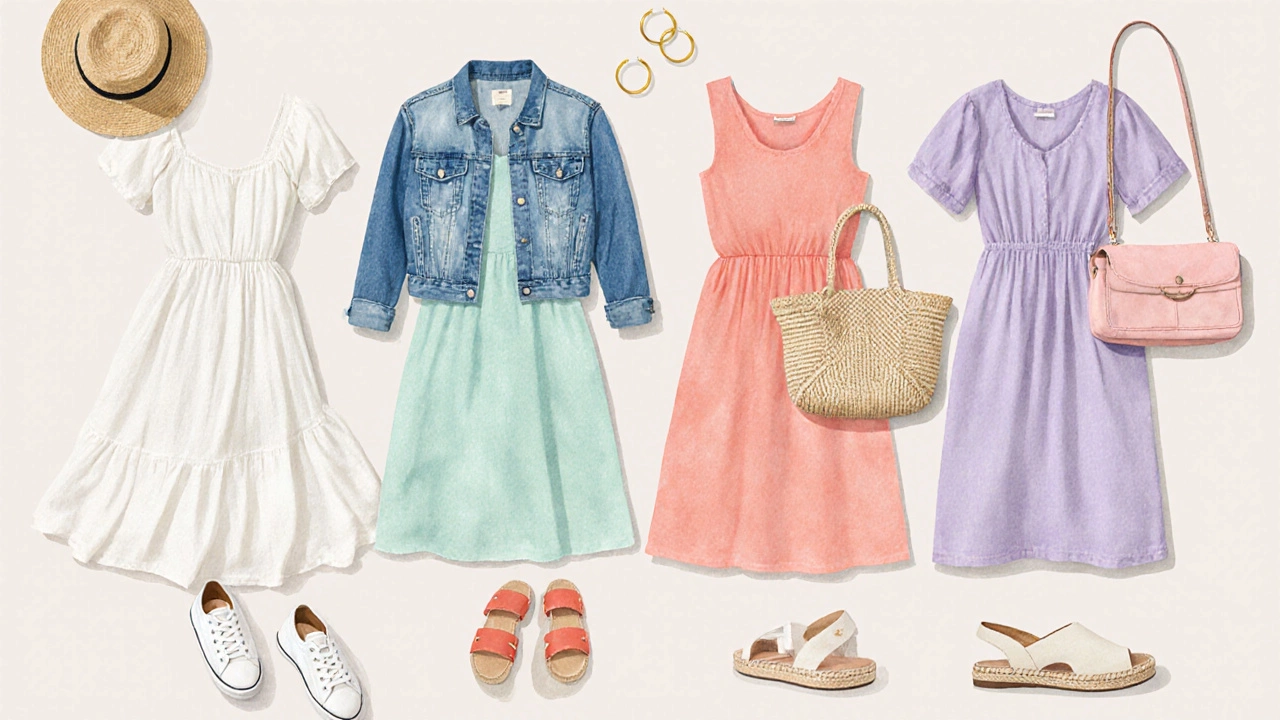
How to style each cool shade
Below are quick ideas for turning each color into a head‑turning outfit.
- White: Pair with straw hats, woven bags, and tan sandals for a beach‑ready look. Add a pop of color with a bright belt or statement earrings.
- Light Blue: Wear with white sneakers and a navy denim jacket for a relaxed weekend vibe. A silver necklace adds a subtle shine.
- Pastel Mint: Match with coral sandals or peachy slides. A natural straw tote keeps the outfit grounded.
- Coral: Combine with ivory espadrilles and gold hoops. A light denim belt gives a casual edge.
- Soft Lavender: Team with nude flats and a pastel pink handbag. A delicate silver anklet finishes the look.
Fabric matters: Pairing cool colors with breathable materials
Linen Fabric is a natural fiber known for high breathability and quick moisture wicking, making it ideal for hot‑weather clothing. When you match a reflective color with a fabric that lets air flow, the cooling effect multiplies. Here are the top fabric choices:
- Linen: Light, airy, and perfect for white or pastel dresses.
- Cotton Voile: Sheer and soft, works well with light blue and lavender.
- Chambray: A denim‑like weave that’s lighter than traditional denim, great for coral or mint.
- Tencel: Made from eucalyptus pulp, it drapes nicely and pulls moisture away, suitable for any of the five colors.
Choosing a breathable fabric ensures the dress moves air across your skin, further lowering perceived temperature.
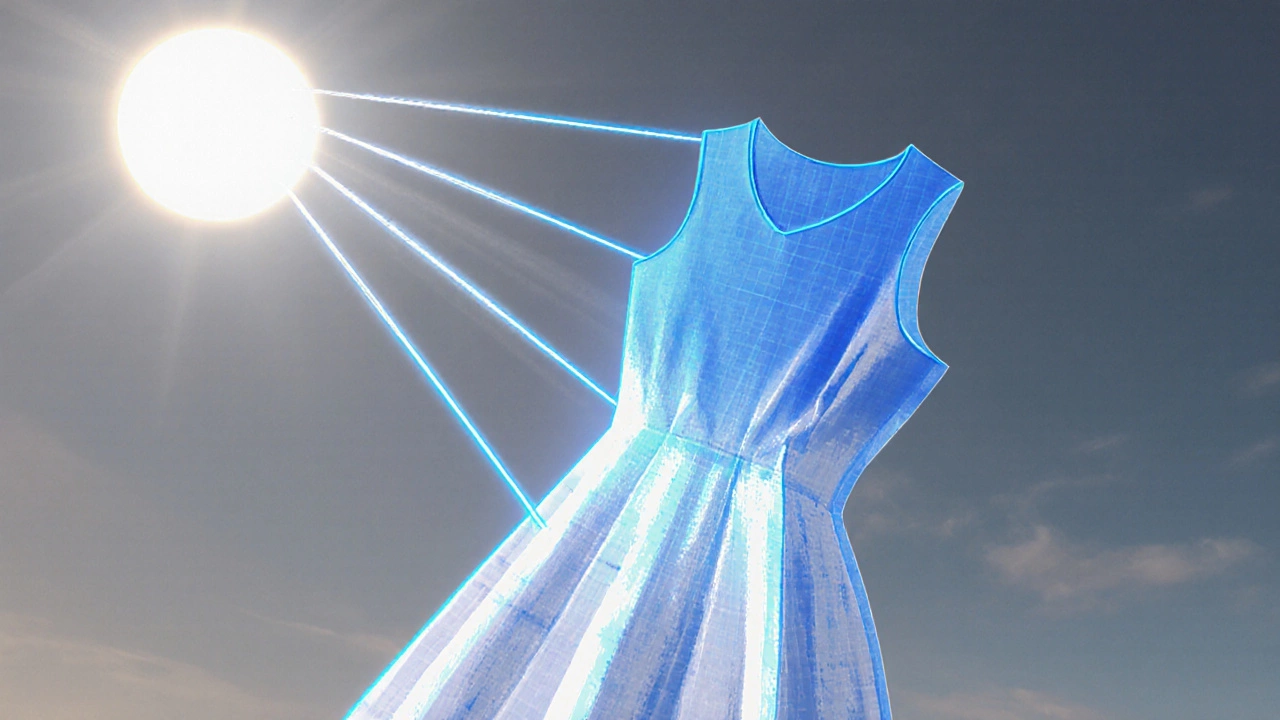
Rapid summer‑dress checklist
- Pick a shade with high heat reflectivity - white, light blue, mint, coral, or lavender.
- Pair with a breathable fabric - linen, cotton voile, chambray, or Tencel.
- Accessorize with complementary neutrals or subtle pops of color.
- Consider the occasion - beach, brunch, or evening garden party - when selecting accessories.
- Test the dress in sunlight before buying; you’ll notice a cooler feel if the color truly reflects light.
Following this list guarantees you stay comfortable while looking effortlessly stylish.
Frequently Asked Questions
Do dark colors ever work in summer?
Yes, but they need to be made from ultra‑light fabrics and worn in shade. A charcoal dress in linen can work for evening events when the sun isn’t directly overhead.
Can I wear bright neon shades without overheating?
Neon colors usually sit on the darker side of the spectrum, so they absorb more heat. If you love neon, choose a lightweight, mesh‑style fabric and keep the dress short.
What about patterned dresses?
Patterns that combine a cool base color with small, light accents work best. A white‑base dress with pastel florals keeps the reflective benefit while adding visual interest.
Is there a scientific way to measure a dress’s cooling power?
The textile industry uses a metric called Solar Reflectance Index (SRI). Higher SRI values mean more sunlight is reflected, resulting in cooler wear.
How can I protect my light‑colored dresses from stains?
Treat the fabric with a stain‑resistant spray before the first wear and opt for breathable, yet tightly woven fabrics that don’t trap dirt.
| Color | Typical Reflectivity % | Popular Pairings | Best Fabric |
|---|---|---|---|
| White | 85 | Straw accessories, tan leather | Linen |
| Light Blue | 70 | Denim jacket, silver jewelry | Cotton Voile |
| Pastel Mint | 68 | Coral sandals, natural tote | Chambray |
| Coral | 65 | Ivory espadrilles, gold hoops | Tencel |
| Soft Lavender | 66 | Nude flats, pastel pink bag | Linen |
By focusing on colors that bounce sunlight away and matching them with fabrics that let air flow, you can enjoy long, sunny days without feeling like a human oven. The next time you shop for a summer dress, look for that cool shade and breathable weave - your comfort will thank you.
